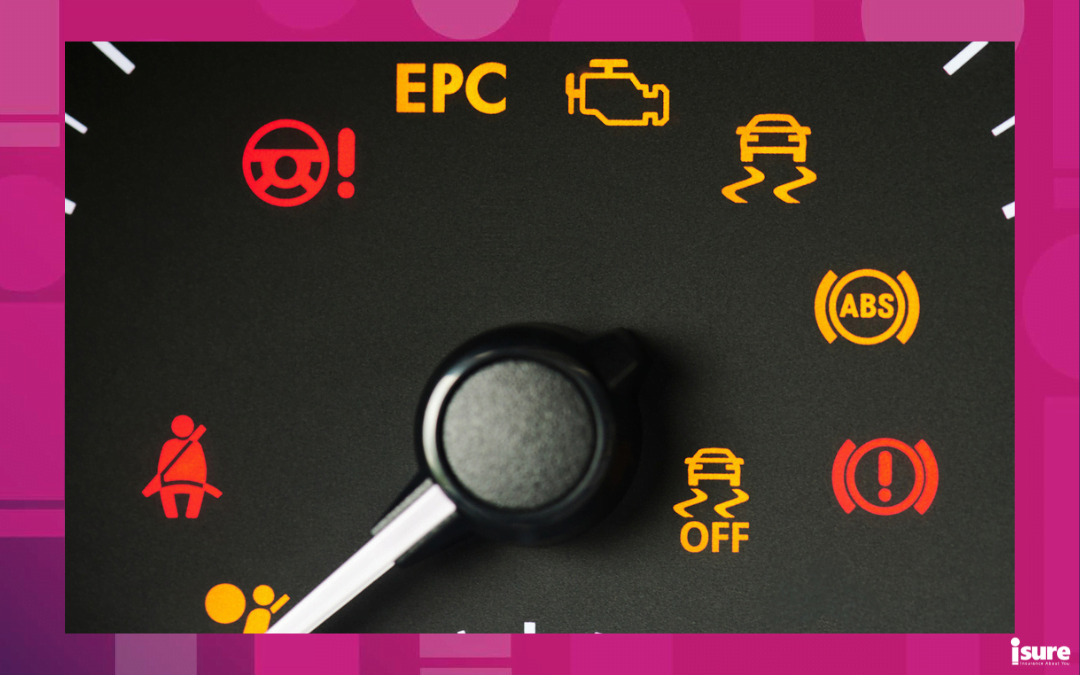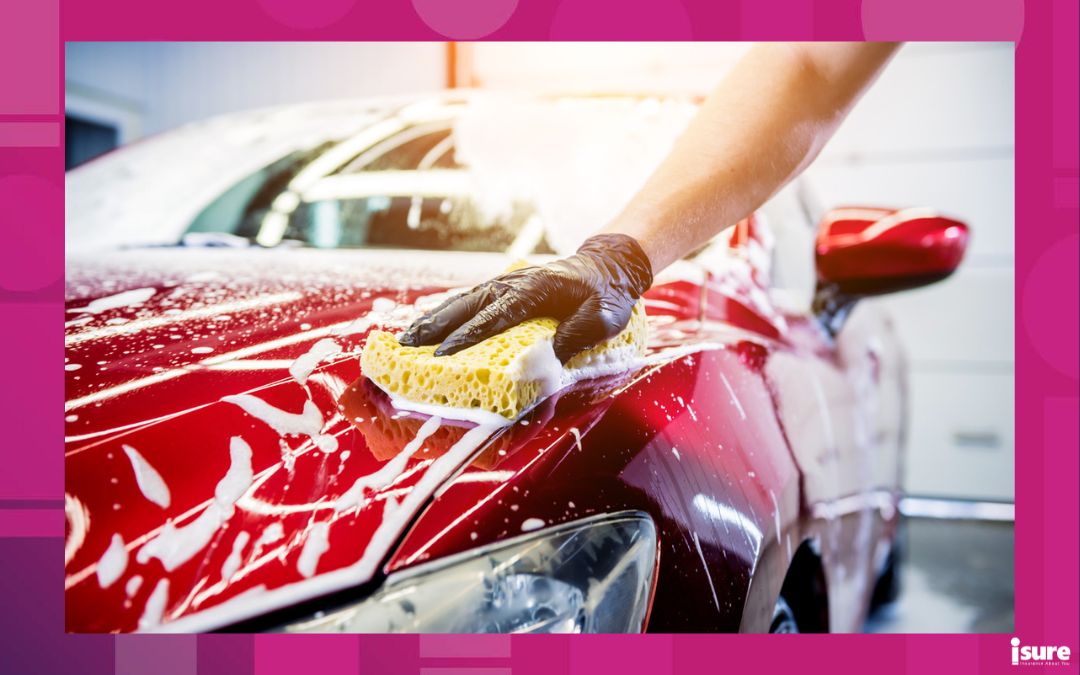Let’s face it, when you’ve been a driver for quite a while, it’s easy to get into certain habits, and not all good ones. However, some of these habits may secretly be damaging your car, and you might not find out until it’s too late! Yes, it’s true that you can be unknowingly doing things to your car that may lead to expensive repairs or dangerous situations on the road. These bad driving habits often fly under your radar, and many drivers don’t even realize they are doing them. Today, isure is going to help you save your car from unnecessary damage and repairs by helping you get ahead of future issues.
1. Forgetting your parking/emergency brake
There are two types of drivers; those that use their parking brakes, and those who don’t know where it is. The parking brake seems like an unnecessary element of the vehicle, but its purpose is important. When you don’t use the parking brake, you put all of the weight of your car on a small piece of metal about the size of your finger called the “parking pawl.” While durable, the parking pawl can break down over time if over-stressed. Your parking brake evens the load, taking the pressure off that one piece.
With that in mind, many drivers use their parking brake as a handrest when they are in motion. This is also something you want to avoid, as the weight of your hand can affect the sliders and cause wear and tear over time! Additionally, this is something they teach in driving school, so it’s an overall good habit to have.
2. Letting your gas tank sit on empty
We get it, gas is expensive! Many drivers think if you run your car near empty, the price may drop tomorrow. However, when you run the tank on low gasoline, the fuel pump is vulnerable to exposure. The gasoline that you put into your car acts as a lubricant for the fuel pump, so when there is little gas in your car, it heats up. The more this happens, the higher chance it can break down or get damaged. As such, you never want your gas levels to drop below 1/4 tank. Let’s face it, no matter how expensive gas is at any given time, you don’t want your car stopping in the middle of the road. On top of this, we promise you that replacing a broken fuel pump will be a lot more pricey than paying a bit extra at the pumps.
3. Hard stops
While a sudden stop is sometimes completely necessary to avoid a collision, you should generally try to avoid them in normal situations. A hard stop is where you aggressively activate the brake instead of pressing it in a gradual, smooth press. First and foremost, hard stops damage the brake pads and rotors in your car by applying too much pressure, which can eventually lead to overheating. Secondly, performing a hard stop often is a great way of running your tires to the ground, forming flat spots sooner. This results in you having to purchase new tires more frequently, which can hurt your wallet in the long run. On top of this, its an incredibly dangerous maneuver on the road and can lead to an accident.
4. Revving a cold engine
When it’s the dead of winter, many unaware drivers rev their engine to help it heat up faster. This is definitely the wrong choice! The oil in your vehicle does not lubricate your engine nearly as well when it’s cold, and many of your car’s components are designed to operate within a a certain temperature range. It may seem strange to think, but our cars are a lot more like the human body than we think. Just as you warm up before a workout, it is crucial you let your car do the same before leaving your driveway. This means allowing the oil pump to fully circulate oil through the system, which can take anywhere from five to 30 seconds.
5. Shifting to drive from reverse
This is a damaging habit that many people may not be aware of. However, it plays a huge part in keeping your car in good shape. You’re backing out of a parking spot and are ready to proceed out the parking garage; so what do you do? Most drivers will switch from reverse to drive, not knowing that it’s actually the wrong thing to do. Doing this damages your engine, transmission and drivetrain. The correct way to reverse is to back up, come to a complete stop, then switch your gear into drive. This way, you are not putting any strain on your vehicle’s parts, which allows it to stay in tip-top shape for much longer!
6. Delaying maintenance
Your car is working perfectly fine, so you don’t need to get regular maintenance, right? At the very least, you can surely put it off for a bit longer? We advise against this. The worst thing you can do to your car is to wait for something to go wrong before you go and get it serviced. So, plan yourself regular maintenance checks on your vehicle and don’t skip them. This is especially true for oil changes, which many people put off far longer than they should. The recommendation is that you get an oil change every 5,000-7,000 km.
Furthermore, you’ll save yourself a ton of money in the long run by catching other damaged components before they break. Typically, the average car should be brought in for servicing every six months or so, so keep an eye on your maintenance lights and kilometres. If money is your worry, we’ve got ways to maintain your vehicle yourself.
7. Flooring it
You’re driving and you approach a perfect stretch of road. There isn’t a car in sight and conditions are clear. What better time is there to try out the full-throttle of your vehicle?! However, besides being unsafe, doing this too often can be quite damaging to your car. It places a lot of pressure on the drivetrain of your vehicle when done frequently. But even worse is the damage that comes after full-throttle driving, which is a hard stop. Not to mention the dangers of flooring it that can likely lead to a severe accident and stunt driving charges.
8. Overloading your trunk
The more you load into your vehicle, the more stress it puts on it. Brakes, suspension, and your drivetrain are often overstressed when you frequently use your vehicle as a hauler. Occasionally overloading it for vacations or moving is fine, but a car works best when you keep it as close to its stock weight as possible. Typically, the average car’s capacity when it comes to weight is roughly 800 pounds. When you go over the recommended amount of weight, you put your car at risk for blowing out your tires and putting your car’s suspension system under a great deal of stress. On top of this, overloading can make it more difficult to drive by reducing your ability to come to sudden stops and turn properly.
9. Keeping winter tires on year-round
Not only does this one have great potential to damage your car, but it can also be incredibly dangerous. Keeping your winter tires on year round is never a good idea, as they are made specifically for winter temperatures only. In summer, the grip on winter tires will disappear and wear down at an alarming rate. So much so, that when used during the hot temperatures of July or August, your snow tires may actually start to melt! This will greatly reduce the tread and on top of being extremely dangerous, it will also completely ruin them and make them unusable for the next winter. If you’d rather keep the same tires all year round, invest in some all-season tires instead.
10. Not slowing down for speed bumps or potholes
When you don’t slow down for a speedbump or pothole, it can do more than just cause an unpleasant ride. When you go full speed over these obstacles, it can cause excessive damage to your car. Your shocks, suspension and wheel alignment can all take a beating when you don’t slow down to avoid large bumps in the road. Additionally, you will not be covered by your insurance for these damages unless specified in your policy. Save yourself from having to undergo costly repairs by simply slowing down.
When keeping these tips in mind, you’ll save yourself from damaging your car and having to undergo costly vehicle repairs. If you want to save even more money on your car insurance, consider bundling your home and auto policies. Contact one of our isure brokers today!




